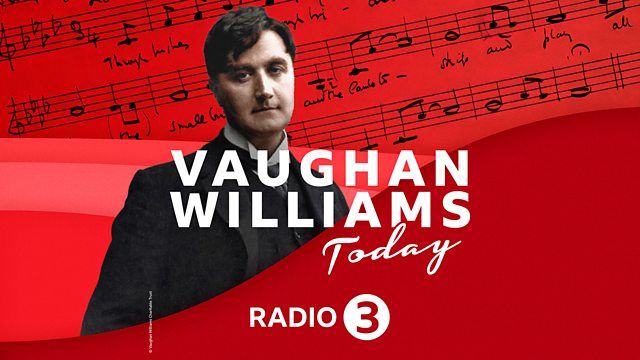
British Sensibilities
Donald Macleod finds Vaughan Williams broadening his musical horizons through studies with Hubert Parry and Charles Stanford and acquiring a new passion for native folk song.
Donald Macleod finds Vaughan Williams broadening his musical horizons through studies with Hubert Parry and Charles Stanford and acquiring a new passion for native folk song.
Ralph Vaughan Williams is one of the UK's most significant musical figures. This month, Donald Macleod takes a fresh look at this much-loved composer as part of Radio 3's 'Vaughan Williams Today' season, marking the 150th anniversary of his birth Donald will be telling Vaughan Williams's life story and exploring his music in fascinating detail over the course of four weeks and twenty programmes. Interleaved with Donald's in-depth narrative accounts, some of our leading authorities on Vaughan Williams will be joining him to share new perspectives. They'll be unpacking the overlooked and less well-known aspects of a composer whose body of work and diverse interests have made such an enduring imprint on British cultural life.
The first week of this landmark series focuses on Vaughan Williams's formative years, and his earliest works. It could be said that Vaughan Williams was pre-destined to be a leading figure in the musical life of Great Britain. He was born in 1872 with, in his own words, "a small silver spoon in his mouth" and his mother was part of the Wedgwood and Darwin dynasties. Charles Darwin was Vaughan Williams' great uncle. Raised, after his father's early death, in the matriarchal family home Leith Hill Place in Surrey, young Ralph was encouraged in the pursuit of knowledge from an early age. The values he was exposed to growing up are reflected in his social awareness later on. He wrote music for every kind of setting, from the concert hall to the village hall. We’ll follow his development from his very first attempt at writing music, Robin's Nest, to the assurance of his London Symphony.
Today, we see Vaughan Williams arriving at the Royal College of Music in 1890 and discovering that he had some serious catching up to do. He knuckled down and soon enough was filling in the gaps in his knowledge of music. That didn't mean it was all plain sailing. His lessons with Stanford were far from congenial!
Songs of Travel
1. The vagabond
Christopher Maltman, baritone
Roger Vignoles, piano
Heroic elegy & Triumphal Epilogue
I: Andante sostenuto
Roderick Elms, organ
����ý Concert Orchestra
John Wilson, conductor
Folk Songs from the Eastern Counties
No 2 Tarry Trousers
No 13 The Sheffield Apprentice
No 15 Harry the Tailor
Roderick Williams, baritone
Nicky Spence, tenor
William Vann, piano
Norfolk Rhapsody no 1 in E minor
London Symphony Orchestra
Richard Hickox, conductor
Five mystical songs
The Call, arr. Harry D Bennett
Apollo 5
Toward the Unknown Region
Royal Liverpool Philharmonic Choir
Royal Liverpool Philharmonic Orchestra
David Lloyd Jones, conductor
Last on
Broadcast
- Tue 3 May 2022 12:00����ý Radio 3
Beethoven Unleashed – the box set
What was really wrong with Beethoven?
Composers A to Z
Who knew? Five eye-opening stories from Composer of the Week
Five reasons why we love Parry's Jerusalem
What is the strange power of Jerusalem which makes strong men weep?
A man out of time – why Parry's music and ideas were at odds with his image...
The composer of Jerusalem was very far from the conservative figure his image suggests.
Composer Help Page
Find resources and contacts for composers from within the classical music industry.




